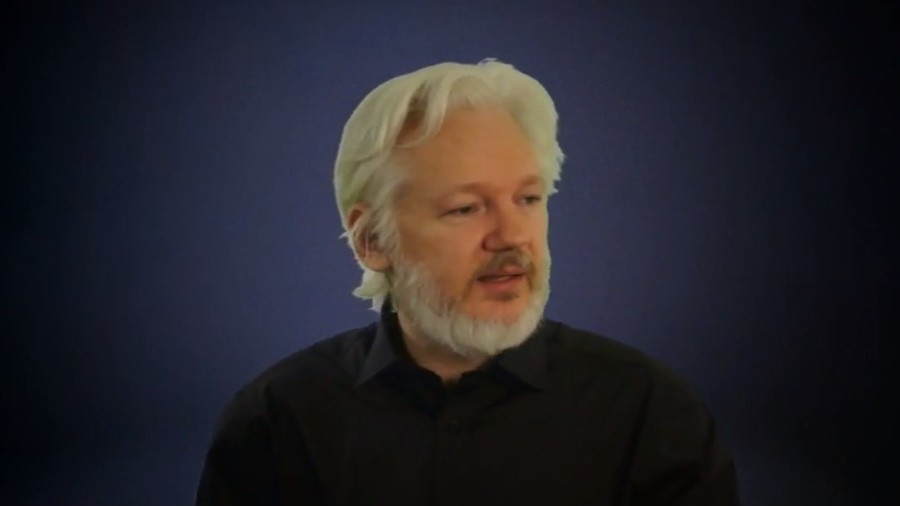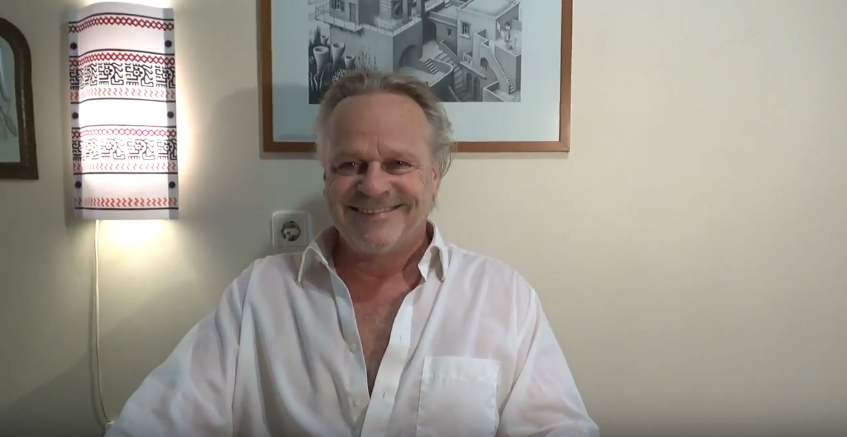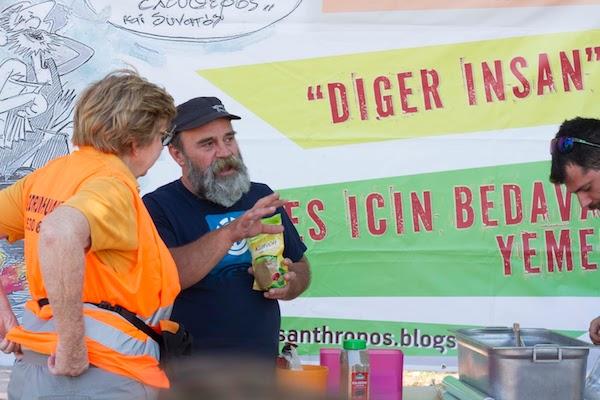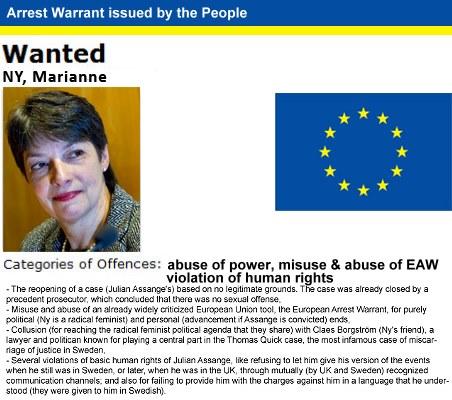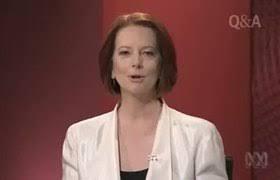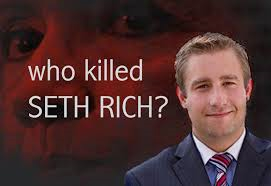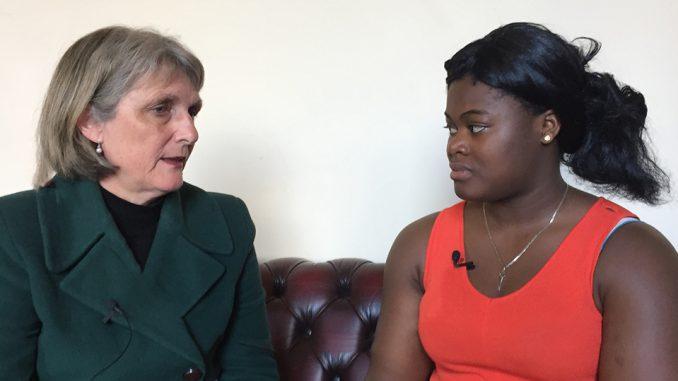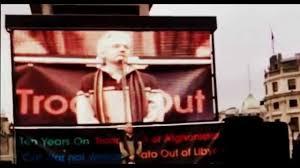WikiLeaks founder Julian Assange remains in solitary confinement inside the Ecuadorian Embassy in London, where he was granted asylum in 2012 against the threat of extradition to the United States for his publishing activities. In recent months, Ecuador’s President Lenin Moreno, under pressure from the U.S. began threatening to evict this political refugee.
In response to this dire situation, people across the political spectrum began to form solidarity through #Unify4J, an online platform to organize a social media movement in support of Assange. Among those include prominent Trump’s supporters. In the midst of Trump administration’s draconian measures on immigrants and empowerment of white supremacist groups, the idea of working with Trump’s key allies triggered reaction among the left. Recently, Classconscious.org, an outlet spearheading global civic action for Assange’s freedom, scrutinized the idea of uniting with ultra-right forces that back Trump and urged the movement to draw a line.
Strife around the same issue arose from the former associate and early proponents of WikiLeaks. Barrett Brown, an award-winning journalist, previously imprisoned for charges relating to a Stratfor hack, has been one of the strong voices in support of the whistleblowing site. He described how he has long stood up for the organization’s mission of transparency at great risk to himself, yet in recent months he became upset about what he perceived to be Assange’s alliance with fascists and radical right supremacist groups.
Brown, who recently launched the project Pursuance, an open source software that allows individuals to share information and organize, has ramped up criticism toward Assange in his most vulnerable time. This created the conflict with the Courage Foundation, an organization that provides assistance for whistleblowers. Courage was co-founded by Assange and it has both WikiLeaks and Brown as beneficiaries. According to the article on the Daily Beast, three of Courage’s trustees reportedly instructed Courage’s respected director Naomi Colvin to cut off Brown as some kind of retaliation against his hostile remarks toward Assange. This led to the unfortunate resignation of Colvin, who was forced to walk out from the organization as a matter of principle for her opposition to exclude anyone based on political speech.
Birgitta Jónsdóttir, a former member of Iceland’s Parliament, who now joined the board of Pursuance, responded to this alleged retaliation against Brown. Jónsdóttir, who worked for WikiLeaks in the 2010 publication of the Collateral Murder video, recently tweeted her thoughts on her old colleague: “It’s beyond sad to watch the hubris of one man being able to do so much damage and alienate people who risked everything for the cause. WikiLeaks is now far closer to alt right groups then digital rights groups, by choice of its overlord.”
The divisiveness that has grown among progressives around the advocacy of WikiLeaks brings extreme alarm. It weakens any kind of efforts to resist government and corporate oppression. Finding a way to overcome this force becomes now important, not only for Assange’s freedom, but also for creating a viable movement for democracy.
Innovation on the Internet
So, where does this divisiveness really come from? Since its mainstream recognition in 2010, WikiLeaks was accused of many things in different places and by various groups of people. WikiLeaks once tweeted: “In Russia, Julian Assange is a MI6 agent; In US, a Russian agent; In Iran, a Mossad agent; In Saudi, an Iranian agent; In Libya, a CIA agent. World wide establishments accuse those who expose them of being the enemy of the people.” The latest accusation became ‘WikiLeaks, as an agent of fascism!’
The latest accusation became ‘WikiLeaks, as an agent of fascism!’ Yet, the organization cannot be pigeonholed into these labels. Needless to say, none of these characterizations are accurate. WikiLeaks is a 100% publicly funded transnational journalistic organization that is not bound to any nation, corporation or political parties. This borderless existence comes to challenge our preconceived notion of journalism based on a model that operates within the confinement of the nation-state. WikiLeaks can be best looked at as an innovation of journalism on the Internet. Just as many inventions of the past, it brought disruption to the system and became controversial. Think of Johannes Gutenberg and his invention of the printing press. The spread of the printing press made it possible for people to read the Bible and democratization of knowledge enabled by his technology has brought the decline of Church’s authority.
In a similar way, Assange together with mathematicians, activists and journalists all around the world, invented a new form of journalism that is much more effective in revealing corruption of governments and institutions. With a pristine record of accuracy, it published more classified information than all media combined, exposing human right abuses, government spying, torture and war crimes on a scale that was unprecedented.
Birth of this global Fourth Estate was a game changer. It radically altered the media landscape. Just as scientists and inventors of the past who were imprisoned for their unconventional beliefs and discoveries, Assange has been persecuted for the breakthrough of this innovation. In the 17th century, Galileo’s thought that provided the evidence about the Earth revolving around the Sun was met with condemnation by the orthodoxy of the Church. In these contemporary times, WikiLeaks and its idea of transparency for the powerful seem to have become a heresy that is regarded as a punishable offense by the state.
Ethos of cypherpunks
Without understanding the essence of this new invention, people’s attitudes toward WikiLeaks swing back and forth. Whether it is capitalism or socialism, Democrats or Republicans, many demand WikiLeaks to demonstrate its allegiance to their political ideology and support their preferred candidate. They conflate the invention with the inventor, becoming obsessed with Assange.
One publication put him in a category of a leftist, while another turns him into a right winger. People speculate and get overly attached to Assange’s political views. Ultimately, the opinion of this inventor does not and should not matter. In the same way that people don’t have to know who invented electricity to have a light or a combustion engine to drive a car, everyone can benefit from this new journalism and use it to enrich society at large.
Yet, for those who still feel the need to know, Assange’s thoughts are not shaped by a conventional political dichotomy of left and right. The ideas that conceived WikiLeaks originated from the philosophy of cypherpunks, an electronic mailing list that advocates privacy through the use of strong cryptography.
The motto of this loosely tied network that became active since the late 1980’s is depicted with the expression “cypherpunks write code”. Adam Back, a cryptographer who was cited in Bitcoin’s white paper described it as a particular mindset to make changes through creating alternatives, rather than engaging in typical political efforts of petitions and protests. Back noted how pressuring politicians and promoting issues through the press tends to be slow and creates an uphill battle. He pointed out how instead of appealing to authority for change, people can simply “deploy technology and help people do what they consider to be their legal right”, and then society will later catch up to reflect these values.
Assange describing himself as part of cypherpunks that came from a different tradition than libertarians in California, articulated their unique efforts to balance power between the individual and the state. He said, “By writing our own software and disseminating it far and wide we liberated cryptography, democratized it and spread it through the frontiers of the new internet.” Being true to this ethos of cypherpunks, Assange deployed the technology of a secure drop box that runs on Tor, a free software that routes Internet traffic to enable the anonymous submission of material.
Liberating the First Amendment
The creation of WikiLeaks brought a major upgrade to the existing model of free speech. In the U.S. where tradition of freedom of speech began, in its inception, the First Amendment right was not able to fully embody its potent creative power. The idea of democracy, a government established under the rule of people, expressed in the preamble of the Constitution “we the people” remained an ideal. A move toward its fulfillment came from below by those who opposed the ratification of the 1787 Constitution that lacked the guarantee of individual liberties. The anti-federalists demanded that the Bill of Rights was necessary in order to restrict governmental power and their efforts made it possible for freedom of expression to be codified into law.
The First Amendment reads;
“Congress shall make no law respecting an establishment of religion, or prohibiting the free exercise thereof; or abridging the freedom of speech, or of the press; or the right of the people peaceably to assemble, and to petition the Government for a redress of grievances.”
With privatization of public airwaves and consolidation of media, an oligarchic class put the First Amendment under its proprietary control, restricting user access and setting terms and conditions for their use. In this dictatorial form of governance, journalists and editors are installed as an arbitrator of truth to manage and monitor public opinion. Through a creed of objectivity, they justify censoring any dissenting thoughts that challenge government official lines crafted by the corporate masters. This was evidenced by the 2013 documentary film Mediastan that exposed the former New York Times executive editor Bill Keller’s cozy relationship with the US government, the military and the CIA.
It was in this context of corporate dictatorship that Assange used cryptography as a nonviolent democratic weapon to revolt. From its onset, the US Constitution framed by white property owners with their imperfection manifested in slavery, genocide of natives and denial of women’s rights corrupted the source code of equality written in the Declaration of Independence. Now, over 200 years later, Australian born computer programmer and journalist aimed to restore this original code of democracy through building a publishing platform online that is run on free software.
With the creation of WikiLeaks, Assange liberated the First Amendment from this archaic system of national governance. Significance of this invention is that it decentralized the function of free press, extending the First Amendment protection that has been exclusively preserved for the profession of journalists to ordinary people. Now, through this innovative anonymous submission system, anyone in the world with Internet connection can communicate with people around the globe about the fraud and wrongdoing of any governments or institutions. Without fear of retaliation, people can now transcend boundaries of nation-state to form association with one another and redress their grievances.
With scientific journalism at its core, this new media of the Internet replaced the source of legitimacy from the profession’s creed of objectivity to the actual documents themselves that are authenticated. Access to full achieves in a searchable format empowered everyday people all over the world. They can now engage in their own history as it is happening and use information to create social change.
Claiming creative power within
The US government under Obama began a war against the First Amendment, trying to stop this WikiLeaks’ mission to bring free speech to the world. In this battle now being carried on by the new President Trump, Assange, as a lightning rod got inflamed with mainstream media hype of Russia Gate, demonizing the organization’s role in the 2016 US election. Without any solid evidence, Democrats throw around opinions, blaming Assange for the victory of Trump. They accuse the organization as collaborating with a fascist, when in fact the release of John Podesta emails exposed the Democratic establishment as actively aiding Trump candidacy with their strategy to elevate “pied piper” GOP candidates.
Some of Assange’s former allies also got caught up with the heat that fixates public gaze on his personality. By expressing disdain toward Assange’s flaws and what appeared to be their personal grudges against him that should be reconciled individually, they plunge themselves into the orgy of identity politics. While they are fully entitled to their opinion and criticism about his character, the timing and the way it was voiced when he can’t respond is concerning. This only adds fuel to the establishment’s character assassination of this political prisoner, who was placed under surveillance cameras and intense media scrutiny to the level that no one in the world are made to endure.
In facing the struggles of the racial injustice in the civil rights era, Martin Luther King Jr. recognized the similar force of divisiveness that could destroy the movement. In a sermon delivered in 1957 in Montgomery, Alabama, King identified it as hatred and described how it “distorts the personality of the hater.” He noted how this hatred has created “something of a civil war” inside people that divides them against one another. He reminded all about a redemptive power of love that could “save our world and our civilization”:
“Love is creative, understanding goodwill for all men. It is the refusal to defeat any individual. When you rise to the level of love, of its great beauty and power, you seek only to defeat evil systems. Individuals who happen to be caught up in that system, you love, but you seek to defeat the system.”
Reign of the heart
This radical love that embraces even one’s opponents is the heart that accepts all existence, giving all a right to express themselves equally. This heart that does not favor certain opinions as good and judge others as bad is the cornerstone of our democracy. The function of the First Amendment is to connect us to this silent pulse of the heart, placing it at a center of society to preserve the liberty of all people.
In the interview conducted by an award winning filmmaker John Pilger, renowned political analyst Noam Chomsky once said, “If we don’t believe in freedom of expression for people we despise, we don’t believe in it at all”. Democracy dies when we deny speech of those whom we oppose and our collective heart suffocates, with each individual not being able to speak freely. Tyranny triumphs the rule of law when we can’t breathe through diverse opinions and perspectives to inspire one another to form a court of public opinion.
WikiLeaks enabled the true function of the First Amendment. As a countenance of democracy, this revolutionary journalism protects people against suppression of speech by allowing all voices including views that are unpopular and marginalized. This can illuminate what liberals consider WikiLeaks’ troubling appearance of associating with Trump Jr. and speaking up for conspiracy theorists like a Infowars radio host Alex Jones, when he got censored by Silicon Valley tech giants.
In the article “No, Julian Assange Is Not a Fascist”, Gary Lord who writes political commentary has cut though the corporate media headlines that twist WikiLeaks’ professional contact with President Trump’s son. By presenting their Twitter direct messages in a full context, he dismantled the widely held myth that Assange supports Trump and WikiLeaks helped his campaign. What is revealed in these exchanges was WikiLeaks asking Trump’s son to help them publish his father’s tax returns (which was ignored), while refusing inquiries of both Cambridge Analytica and Trump Jr., regarding the upcoming publications. Lord summed up the nature of their interaction as WikiLeaks just doing the things that any good journalistic organization would do.
In Trump cabinet’s aggressive pursuit to criminalize journalism, Assange is now seized in the embassy, deprived of sunlight and health care, being cut off from the outside world. As the fate of press freedom looks grim, cynicism and apathy spread with many of his colleagues in mainstream media turning away from his predicament and spectators lamenting this tragedy from afar. The fact is, it is not Assange who has created damage and alienated people as critics say. Rather, it is our lack of understanding of true meaning of free speech that brings damage to efforts of those who risked everything for democracy and has condemned Assange to profound solitude.
Efforts to free Julian Assange challenges us all to uphold this right to free speech, with moral courage to love our enemies. When politics wins, democracy loses. Only through our united front built upon our feeling of truth, can we bring the reign of the heart that can dismantle the levers of control and realize universal ideals that all men and women are created equal.
Nozomi Hayase, Ph.D., is an essayist and author of WikiLeaks, the Global Fourth Estate: History Is Happening (Libertarian Books, 2018). Find her on twitter @nozomimagine.
